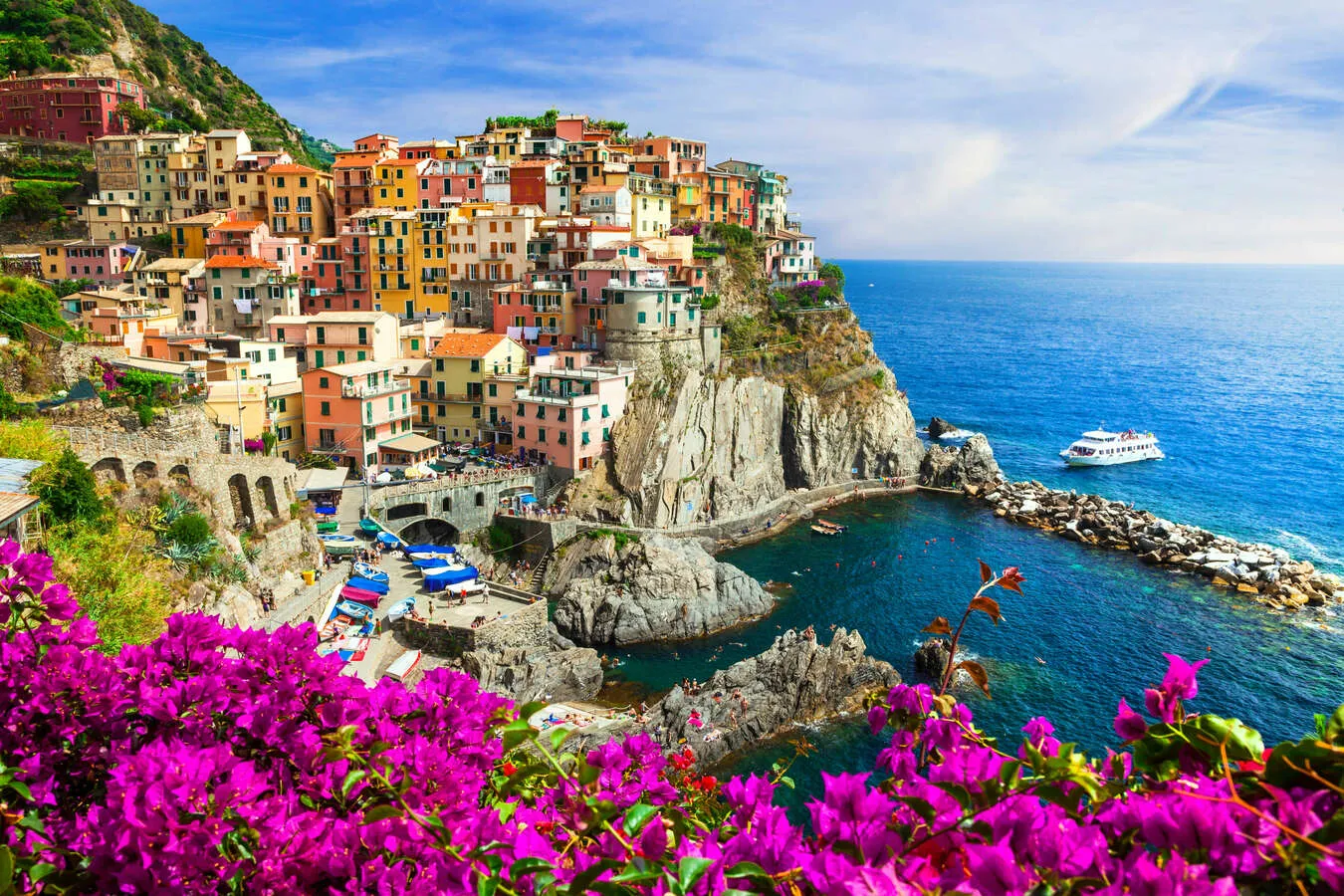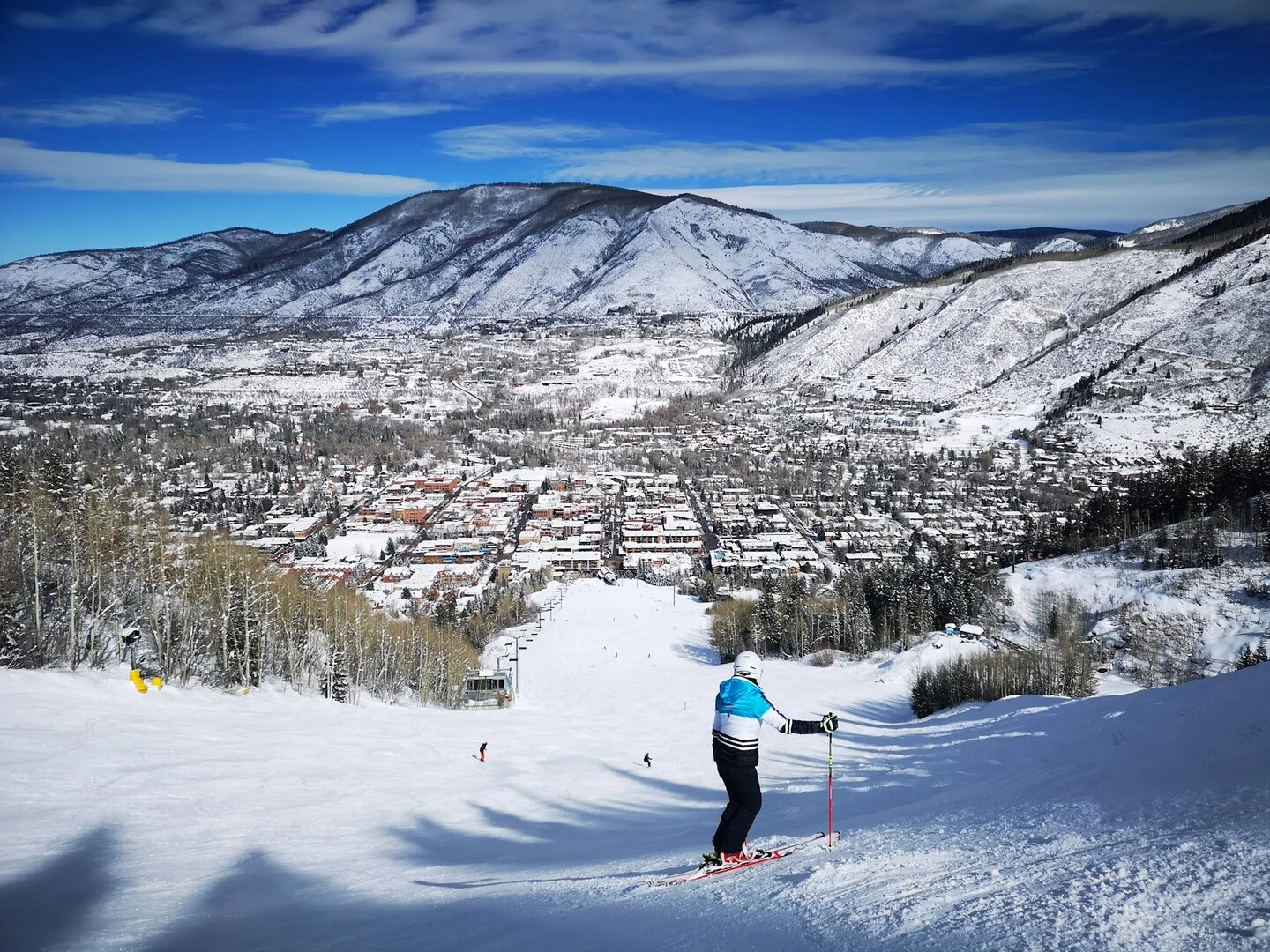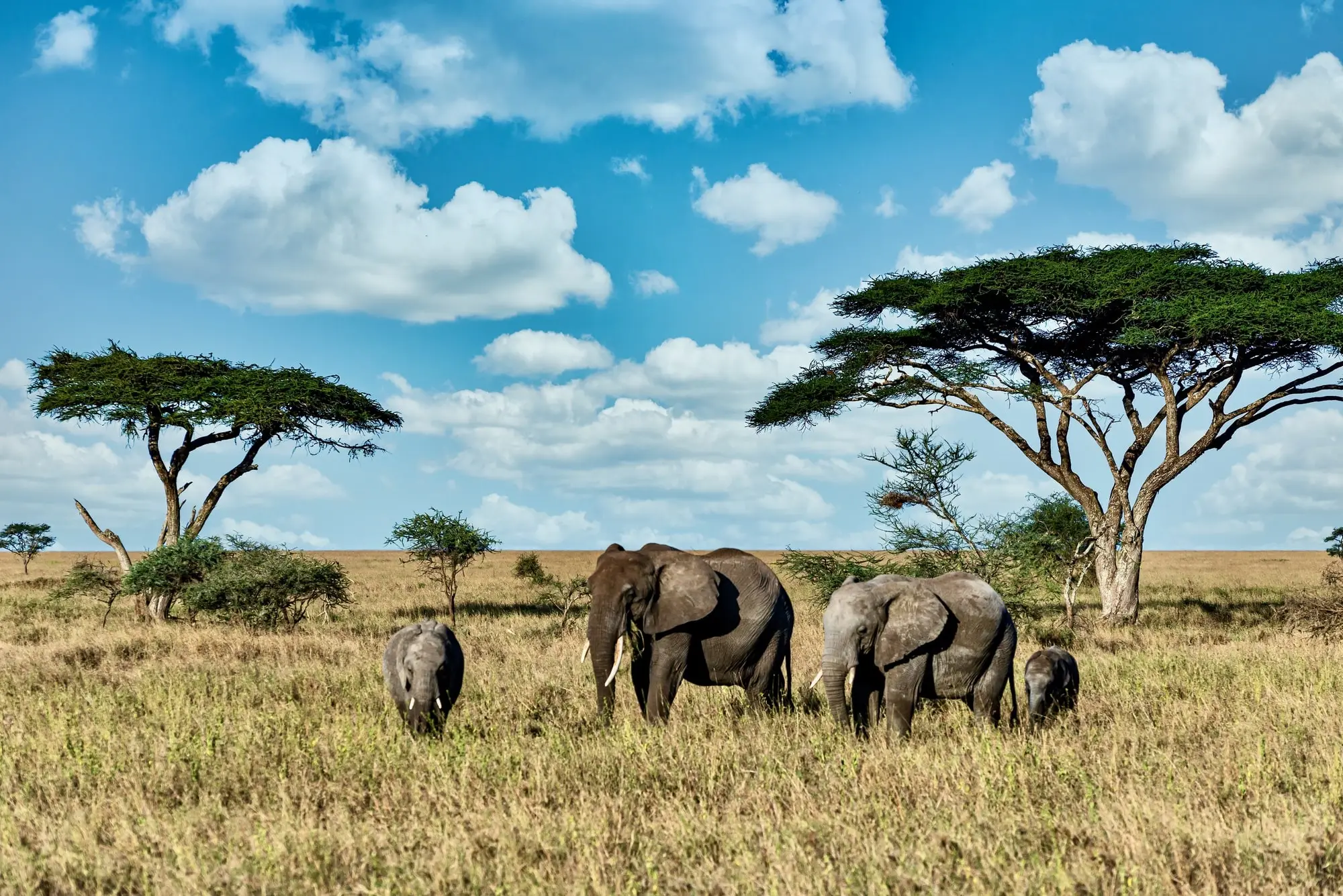
From the golden dunes of the Sahara to the lush plains of the Serengeti, from tranquil tropical islands to bustling, culture-rich cities, Africa is a continent of breathtaking diversity and unforgettable experiences, read on as we take a look at the safest countries in Africa.
When travelling countries in the African continent, one question often comes up: Is Africa safe to visit?
To help you feel confident and prepared as you plan your journey, we’ve put together a list of the safest places to visit in Africa, along with practical safety tips to ensure your trip is memorable and trouble-free.
The GPI evaluates 23 indicators, including levels of societal safety, internal conflict, and militarisation, and scores each country from 1 to 5. The lower the score, the safer the country is considered to be.
While we’re using the GPI to help guide our rankings, it’s important to remember that a lower peace score doesn’t always reflect your personal safety as a traveler. Many destinations across Africa are very safe and welcoming, especially when visited with awareness and preparation.
With that in mind, let’s dive into the safest countries to visit in Africa.
Why Trust Our Travel Recommendations?
I’m Megan, Moonsand writer and author of this post. So why should you trust me?
As a full time traveller, I’ve never appreciated generic blogs that are clearly written by people who’ve never stepped foot into a country, especially when it comes to talking about whether it feels safe.
When I write about safety, I go beyond headlines and outdated government advice, and instead focus on real stories, first-hand experiences from fellow travellers, and the latest data, like the Global Peace Index, to build a picture that’s honest, balanced, and actually helpful.
This guide is no different. I’ve spent time researching what safety really looks like in different parts of Africa, from reading about on-the-ground experiences to hearing from solo travellers and long-term visitors who’ve explored the continent in depth.
What I’ve found time and time again is that while safety varies from place to place, just like anywhere, the most common stories are about friendly locals, unforgettable landscapes, and travel experiences that stay with people for a lifetime.
So, while no place is ever 100% risk-free, this post is designed to help you travel smarter and with confidence.
The 8 Safest Places to Travel in Africa
1. Mauritius
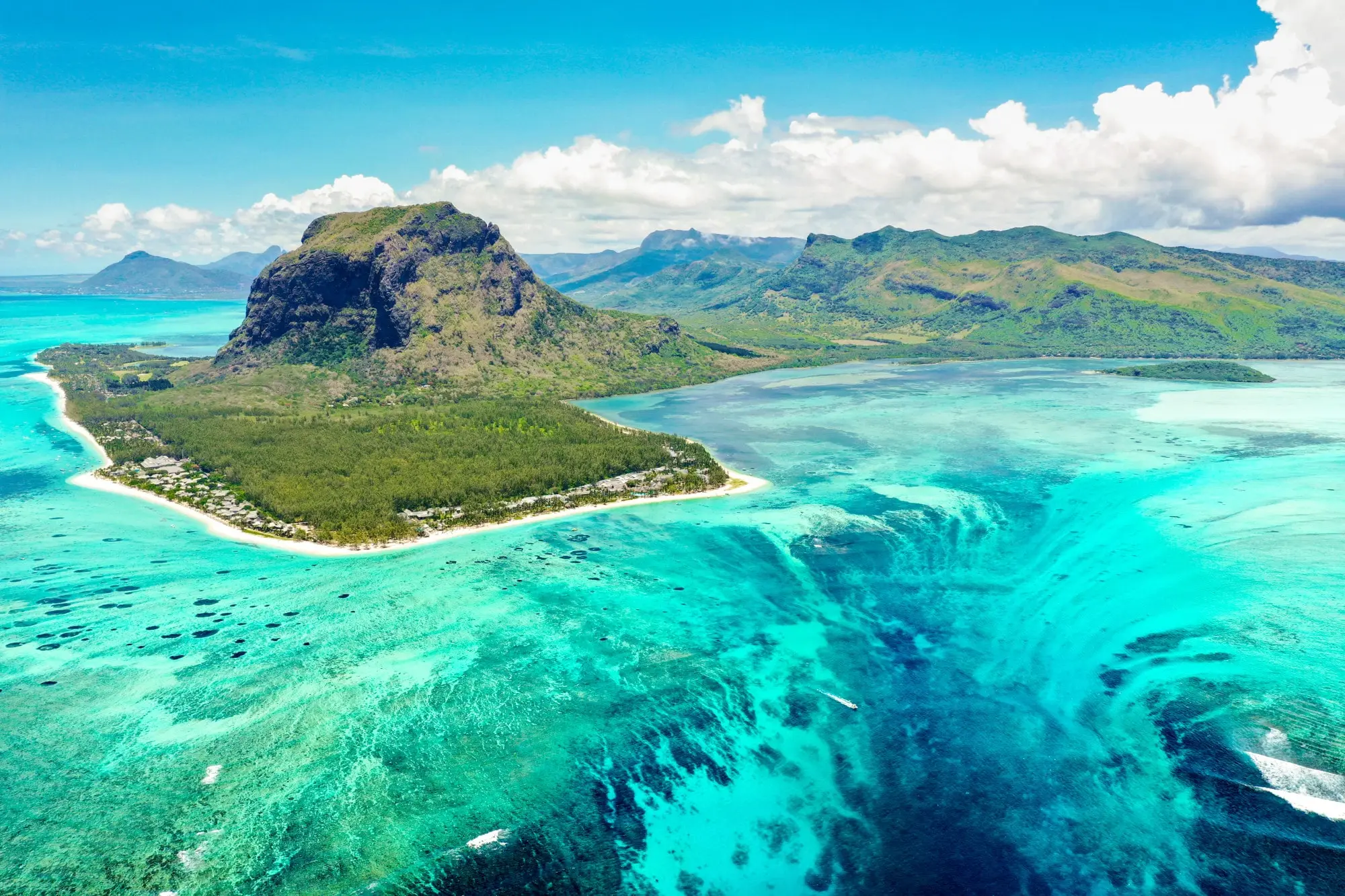
GPI: 1.59
Rank: 26/163
Known for its turquoise lagoons, powdery beaches, and laid-back island charm, Mauritius is not just a dream destination, it also ranks as the safest country in Africa according to the Global Peace Index.
With a very low crime rate and a strong sense of community, most visitors feel completely at ease exploring the island. Violent crime is rare, but like anywhere, petty crime such as pickpocketing and bag snatching can happen in touristy areas like downtown Port Louis and busy beaches, so stay alert and keep your valuables secure.
Female travellers generally find Mauritius safe, though it’s still wise to avoid walking alone at night in quiet or poorly lit areas.
If you're visiting between November and May, be aware of the cyclone season. While major storms aren’t common, they can cause disruption, so check weather updates and follow local advice if needed.
LGBTQ+ travellers are welcome at many resorts, but Mauritius still has some outdated laws, so discretion is advised with public displays of affection outside tourist zones.
2. Botswana
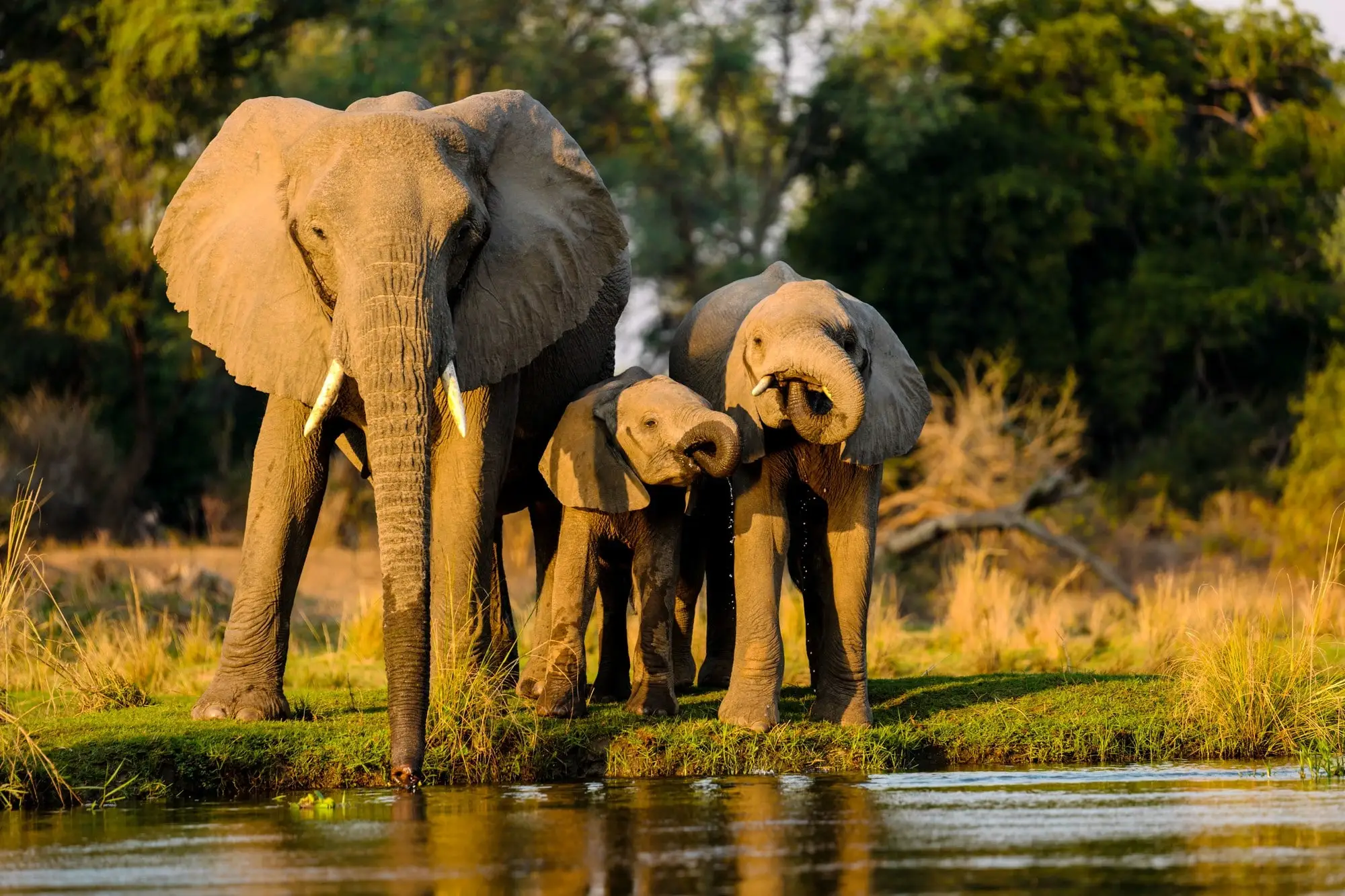
GPI: 1.74
Rank: 43/163
Home to the Okavango Delta, Moremi Game Reserve, and Chobe National Park, Botswana is one of Africa’s top destinations for safaris and wildlife experiences, making it one of the best african countries to visit.
With the largest elephant population in the world and some of the continent’s most untouched wilderness, it’s no wonder millions of nature-loving travellers are drawn here each year.
Botswana is also the second safest country in Africa, known for its low violent crime rates and welcoming locals. Most crime is limited to petty theft like pickpocketing or bag snatching, particularly in larger cities such as Gaborone, Francistown, and Maun. Keep valuables secure, stay alert in public spaces, and avoid walking alone at night.
Vehicle break-ins can happen, so don’t leave belongings in plain sight and always keep doors locked, especially when stopped at traffic lights. Use licensed taxis with blue plates, agree on fares beforehand, and ask your hotel to arrange rides when possible.
Nature is a major draw here, but it’s important to respect the risks. Always follow your guide’s advice, and avoid swimming in rivers or lakes due to the presence of crocodiles, hippos, and waterborne diseases.
For female travellers, Botswana is generally safe, though solo visitors may encounter occasional unwanted attention in nightlife settings. Modest dress is appreciated in rural areas, while casual clothing is fine in tourist hubs.
LGBTQ+ travellers are legally protected, same-sex relationships were decriminalised in 2019, but public displays of affection (for any couple) are uncommon and may attract attention, so discretion is recommended.
3. Namibia
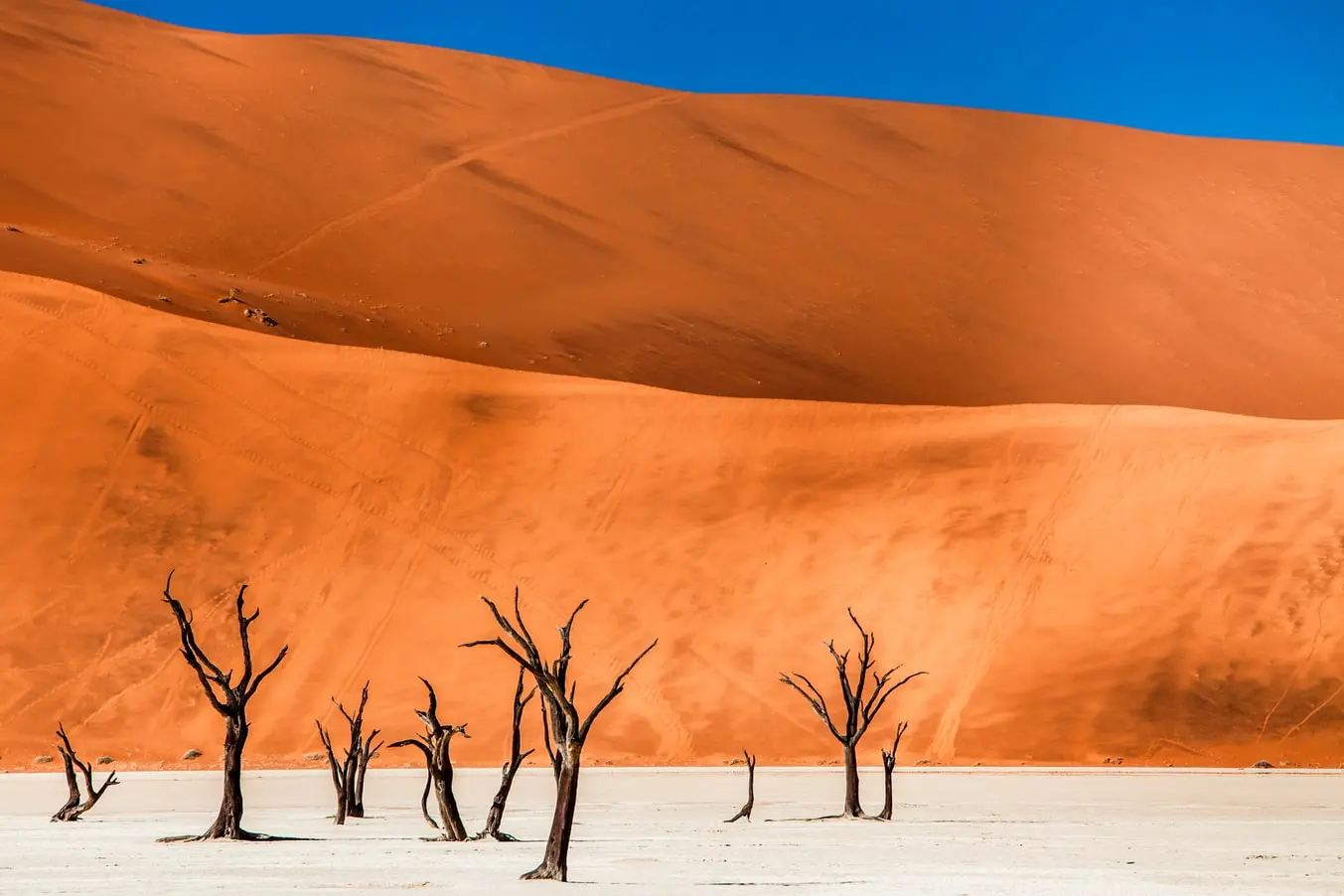
GPI: 1.79
Rank: 50/163
With towering red dunes, vast salt pans, and wildlife roaming freely across open plains, Namibia offers some of the most dramatic landscapes in Africa. It’s a dream destination for road trippers, photographers, and safari lovers alike, and one of the safest African countries for travellers.
Violent crime is rare, especially outside of cities, and most visits are trouble-free. That said, petty theft and opportunistic crime can occur, particularly in Windhoek, Swakopmund, and other urban centres. To stay safe, avoid walking alone at night, don’t flash valuables, and keep your belongings out of sight, especially in parked cars or public spaces.
<!-- Pulse Newsletter -->
Namibia’s greatest risks are environmental, not criminal. Self-driving is popular here, but the remote roads can be rough, especially in the rainy season, and animals often wander onto highways. Avoid driving at night, and always carry extra water, fuel, and a spare tire if you’re heading into remote areas.
The country is politically stable with minimal civil unrest, and public demonstrations are rare and usually peaceful. Terrorism risk is low, and there are no known active threats to travellers.
For female travellers, Namibia is generally safe, even for solo travel, though usual precautions apply in cities and nightlife settings. LGBTQ+ travellers are legally protected, but public displays of affection may attract attention, especially in rural areas.
4. The Gambia
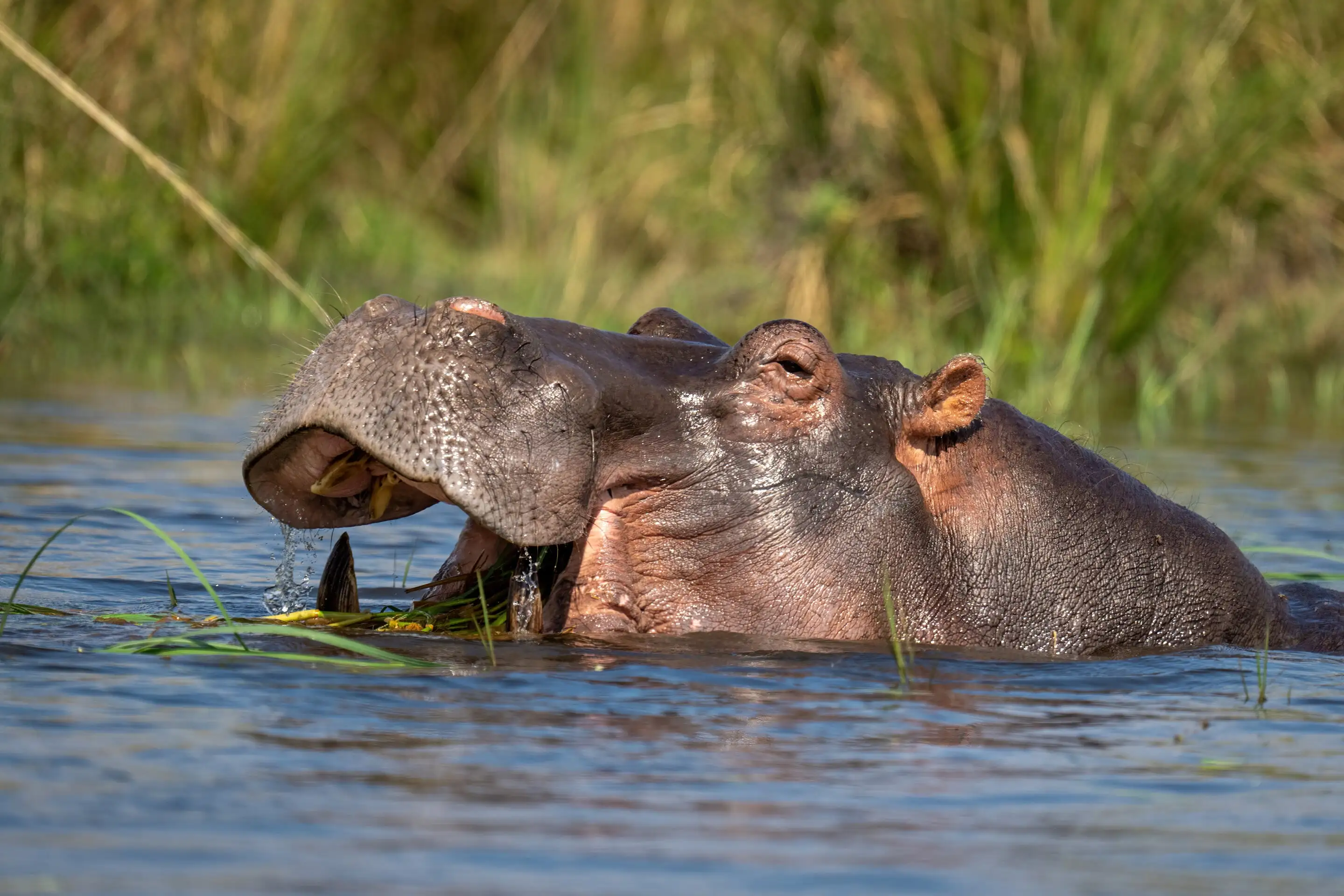
GPI: 1.86
Rank: 55/163
Nicknamed ‘The Smiling Coast of Africa’, The Gambia is a small but lively West African country known for its vibrant culture, welcoming locals, and relaxed beaches. Most visitors find it safe and easy to explore, especially along the coast, but a few precautions are worth keeping in mind.
Petty crime, such as pickpocketing and phone snatching, can happen, particularly in busy areas like markets or ferry terminals. Bribery and police corruption are more common than violent crime, drivers especially may be asked for ‘fees’ at checkpoints, even if no violation occurred. Hiring a local guide or driver can help avoid hassles.
Driving in The Gambia can be unpredictable due to potholes, unlit roads, and erratic traffic, especially near Banjul or Serekunda. If you’re self-driving, take it slow and expect frequent police stops. Night driving is not recommended.
Solo female travellers are generally safe at beach resorts, though may attract attention when walking around alone. Dress modestly away from the coast and use taxis or hotel-arranged transport after dark.
While political protests are rare, they can happen, especially around election periods. Stay aware and avoid any demonstrations.
There’s no known terrorist threat, and violent crime is rare. That said, poverty is widespread, and some visitors report discomfort with child begging or being asked for tips by locals offering help or information.
5. Sierra Leone
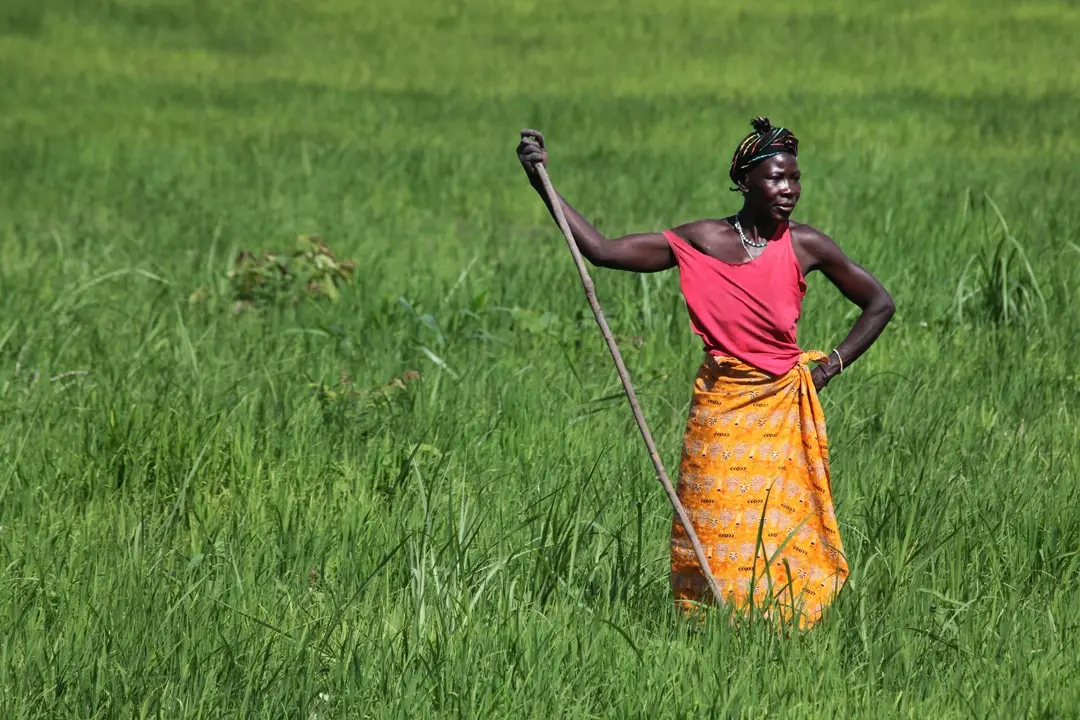
GPI: 1.89
Rank: 57/163
Sierra Leone, with its palm-fringed beaches, lush green mountains, and welcoming people, is one of West Africa’s most underrated destinations, and safest countries to visit in Africa. From the vibrant streets of Freetown to the serene sands of River Number Two and Tokeh Beach, this coastal nation offers a rare blend of culture, natural beauty, and authentic travel experiences, without the crowds.
Safety-wise, Sierra Leone is generally peaceful and calm, particularly for tourists. Most crime is opportunistic, such as pickpocketing or phone snatching, especially in crowded areas like Lumley Beach or around the National Stadium during events.
Avoid flashing valuables, be mindful at night, and take extra care in busy nightlife spots. Violent crime and targeted attacks on foreigners are extremely rare.
Road travel is where most risks lie. Roads outside Freetown can be poorly maintained, and accidents involving motorbike taxis are not uncommon. It’s best to hire a private driver or use reputable car services, especially for intercity travel. If arriving at Lungi Airport, opt for a water taxi service like Sea Coach, which offers reliable and safe transfers to Freetown.
For solo female travellers, Sierra Leone is surprisingly welcoming. While you may encounter persistent attention or marriage proposals, it’s rarely aggressive. A firm but polite refusal is usually enough. Dressing modestly and avoiding isolated areas after dark will help minimise unwanted interactions.
While not a typical tourist destination yet, Sierra Leone rewards the adventurous with warmth, resilience, and unforgettable experiences, just travel with common sense and curiosity.
6. Madagascar

GPI: 1.90
Rank: 59/163
Madagascar, the world’s fourth-largest island, is a dream destination for nature lovers and adventure seekers. Home to an extraordinary array of flora and fauna found nowhere else on Earth, including the iconic lemur, this Indian Ocean island offers a truly off-the-beaten-path experience. From baobab-lined roads to untouched rainforests and pristine beaches, Madagascar is as wild as it is beautiful.
While travel here is richly rewarding, it also comes with challenges. Petty crime like pickpocketing and bag-snatching is common in busy areas such as Antananarivo and popular markets.
More serious crimes, including carjackings and highway robberies, have been reported, especially after dark or in rural southern regions. Keep valuables out of sight, avoid walking alone at night, and be cautious in unfamiliar areas.
Transport can also be risky. Roads are often poorly maintained, and public bush taxis (known as taxi-brousse) can be overcrowded and unsafe. Renting a car with a trusted driver is the safest way to explore, and daytime travel is strongly advised to avoid bandit activity. In cities, smash-and-grab theft from vehicles is on the rise, so keep doors locked and windows up.
Despite these issues, most visits to Madagascar are incident-free. With sensible precautions, travel insurance, and a flexible mindset, you’ll be well-positioned to safely enjoy one of the most unique and biodiverse places on the planet. Just don’t let the lemurs near your snacks, they’re as mischievous as they are charming.
7. Ghana
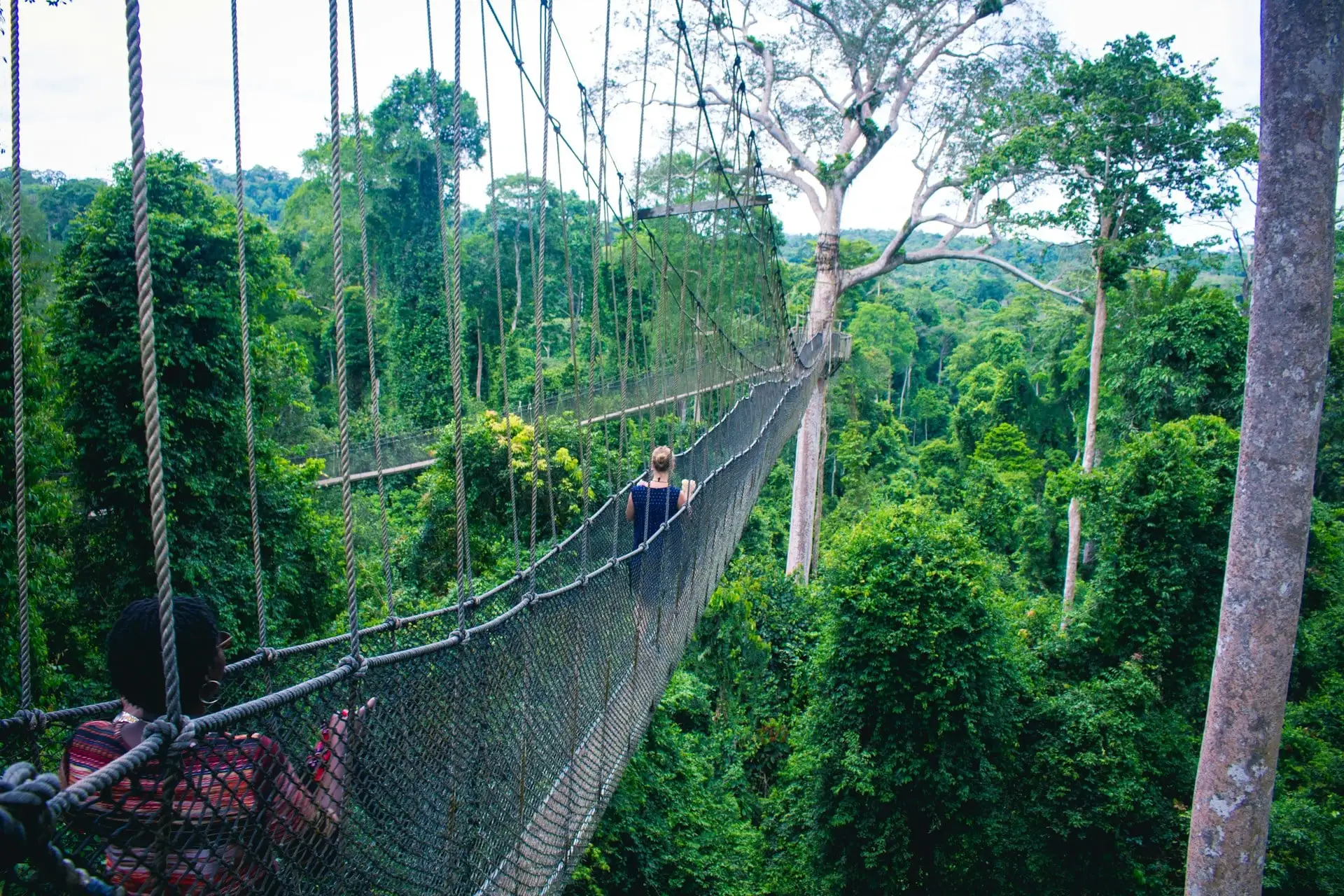
GPI: 1.90
Rank: 61/163
Ghana is often considered one of the safest and most welcoming countries in West Africa. With its stable democracy, friendly locals, and rich culture, it’s an ideal introduction for first-time visitors to the continent. From the bustling streets of Accra to the vibrant coastal forts and serene national parks, Ghana offers a well-rounded travel experience with relatively low levels of violent crime compared to other African nations.
That said, petty crime does occur, especially in busy urban areas and tourist hotspots. Bag snatching, pickpocketing, and muggings are not uncommon in places like Accra’s markets, public beaches, and transportation hubs.
Solo female travellers should exercise caution, particularly at night or in less crowded areas. Avoid walking alone after dark and use registered taxis arranged through hotels when possible.
Some neighbourhoods in Accra, such as Agbogbloshie, Ashaiman, and parts of James Town, have higher crime rates and are best avoided by tourists. Be especially alert around the Circle Interchange, where markets and transport routes converge, and don’t flash valuables in public.
Credit card fraud is on the rise too, so keep your card in sight at all times and avoid using ATMs after dark.
Road travel in Ghana is generally safe during the day, but conditions can deteriorate quickly outside major cities. Always lock your doors, keep windows up, and avoid driving at night. Local buses and taxis are common and usually reliable, but if you’re renting a car, you’ll need both an international driving permit and your home country’s license.
Ghana is socially conservative, and visitors should be mindful of local customs. Dress modestly, avoid public drunkenness or profanity, and always use your right hand for greetings and transactions, using the left is seen as disrespectful.
LGBTQ+ travellers should take extreme discretion, as same-sex relationships are illegal and can carry harsh penalties.
With its warm hospitality, vibrant traditions, and dynamic energy, Ghana remains a top destination for travellers seeking culture and connection, just come prepared, stay alert, and respect local norms.
8. Zambia
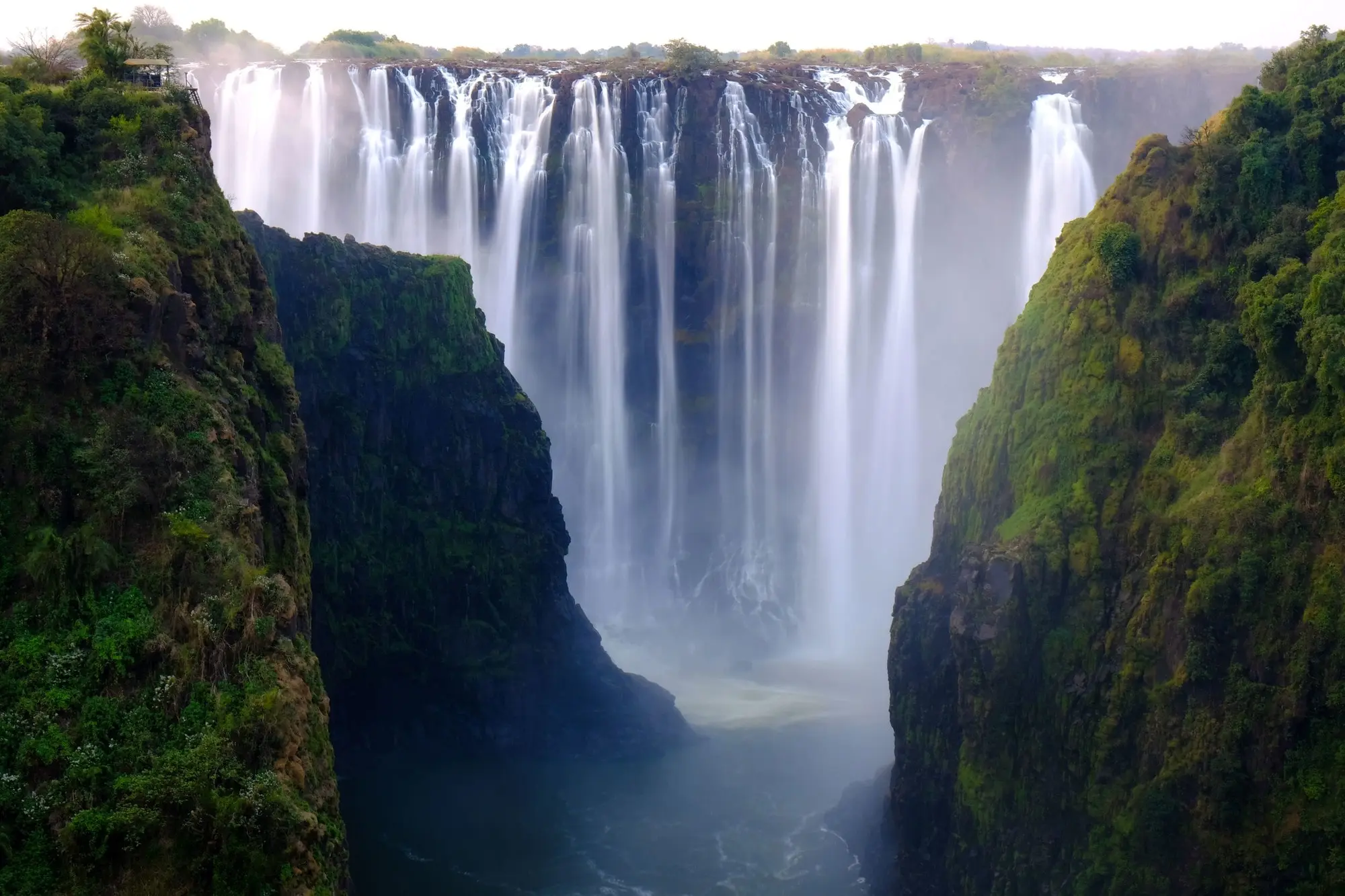
GPI: 1.91
Rank: 64/163
Zambia is often regarded as one of Africa’s safer destinations, especially for nature lovers drawn to its world-famous Victoria Falls along the Zambezi river and expansive national parks. While generally welcoming and peaceful, safety concerns do exist, especially in urban centres and certain border areas. Staying aware and taking common-sense precautions will go a long way in ensuring a safe and memorable journey.
Petty crime, such as pickpocketing, bag snatching, and vehicle break-ins, tends to occur in and around bus stations, shopping areas, and nightlife spots in cities like Lusaka and towns in the Copperbelt region. Keep valuables out of sight, avoid walking alone at night, and don’t leave anything in unattended vehicles.
Some tourists have reported incidents involving spiked drinks at bars and nightclubs, so never leave your drink unattended and be cautious when meeting new people.
Civil unrest, while not common, has flared up in some provinces, especially around Lusaka, due to vigilante responses to crime or ritual-related violence. These events are rarely aimed at foreigners but can cause disruption. Monitor local news, avoid demonstrations, and follow any curfews or instructions from local authorities. Some areas near the DRC border should be avoided entirely due to cross-border crime and instability.
Driving in Zambia requires extra care. Roads often have large potholes, and animals, pedestrians, or poorly maintained vehicles can appear without warning. Carjackings and smash-and-grab thefts are risks, particularly in cities or on roads to and from Lusaka.
Always drive with windows up and doors locked, and avoid traveling after dark, especially in rural areas. If you're renting a vehicle, you’ll need an International Driving Permit and specific safety equipment like reflectors and emergency triangles to avoid fines.
Zambia is socially conservative, and visitors should dress modestly and behave respectfully in public. LGBTQ+ travellers should be discreet as same-sex relationships are criminalised, with severe penalties. Drug laws are also extremely strict; even common over-the-counter medications like diphenhydramine are banned without a prescription and doctor’s note.
With its rich wildlife, warm hospitality, and awe-inspiring landscapes, Zambia remains a rewarding and largely safe destination for travellers who come prepared and respectful of local customs.
Final Thoughts
Africa is a vast and diverse continent, offering travellers everything from epic wildlife encounters and vibrant cultures to breathtaking landscapes and rich history.
While safety concerns do exist in certain areas, the majority of visits are safe and trouble-free, especially when travellers take basic precautions and stay informed.
Before setting off, be sure to check the latest travel advisories, stay aware of local customs and laws, and plan your routes with care. Political situations, weather patterns, and local events can all impact your trip, so a little research goes a long way.
Now it’s time to start planning, stay smart, and get ready for an unforgettable African adventure.
Continue reading our safe travel guides:
- 7 Safest Places to Visit in Central America
- 8 Safest Places to Visit in Asia
- Top 12 Safest Places to Visit in Mexico
- The 10 Safest Places to Visit in South America
{{CTA-CompareBlock="/subscribed"}}
Recommended
Share this blog:














